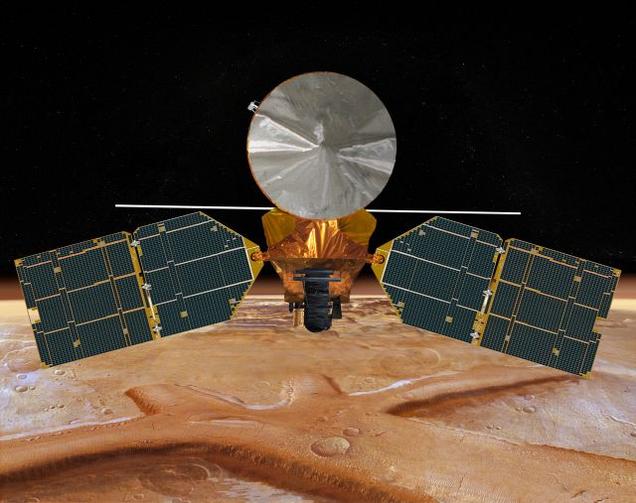Chennai, November 11: After having successfully completed three orbit raising manoeuvres, ISRO’s Mars Orbiter mission on Monday suffered a glitch as it failed to achieve the targeted apogee (farthest distance from Earth) of one lakh km during the fourth orbit raising operation in the early hours.
However, the national space agency clarified that the Mars Orbiter was “normal” and said a supplementary orbit raising operation has been planned at 5 am (IST) on Tuesday to raise the apogee to nearly one lakh km.
During the fourth orbit raising operations which commenced at 2:06 am on Monday, the redundancies built-in for the propulsion system were exercised, including energising the primary and redundant coils of the solenoid flow control valve of 440 Newton Liquid Engine and logic for thrust augmentation by the attitude control thrusters, when needed.
“However, when both primary and redundant coils were energised together, as one of the planned modes, the flow to the liquid engine stopped. The thrust level augmentation logic, as expected, came in and the operation continued using the attitude control thrusters. This sequence resulted in reduction of the incremental velocity,” ISRO said in a statement.
The space agency said while this parallel mode of operating the two coils was not possible for subsequent operations, they could be operated independently in sequence.
During the orbit raising operations conducted since November 7, ISRO has been testing and exercising the autonomy functions progressively, that are essential for Trans-Mars Injection and Mars Orbit Insertion.
During the first three orbit-raising operations, the prime and redundant chains of gyros, accelerometers, 22 Newton attitude control thrusters, attitude and orbit control electronics as well as the associated logics for their fault detection isolation and reconfiguration were exercised successfully, the space agency said.
“The prime and redundant star sensors have been functioning satisfactorily. The primary coil of the solenoid flow control valve was used successfully for the first three orbit-raising operations,” it said in a statement.
In the fourth orbit raising operation on Monday, the apogee was raised to 78,276 km against the target of about one lakh km, because incremental velocity imparted to the spacecraft was 35 m/s against the targeted 130 m/s, ISRO said.
The first three orbit raising manoeuvres were conducted last week in a series of five such operations scheduled on the Mars mission.
After successfully completing these operations, the mission is expected to take on the “crucial event” of the trans-Mars injection around 12:42 am on December 1.
ISRO’s PSLV C 25 successfully injected the 1,350-kg Mars Orbiter into orbit around Earth some 44 minutes after a textbook launch at 2:38 pm from Satish Dhawan Space Centre at Sriharikota on Tuesday, marking the successful completion of the first stage of the Rs 450-crore mission.

